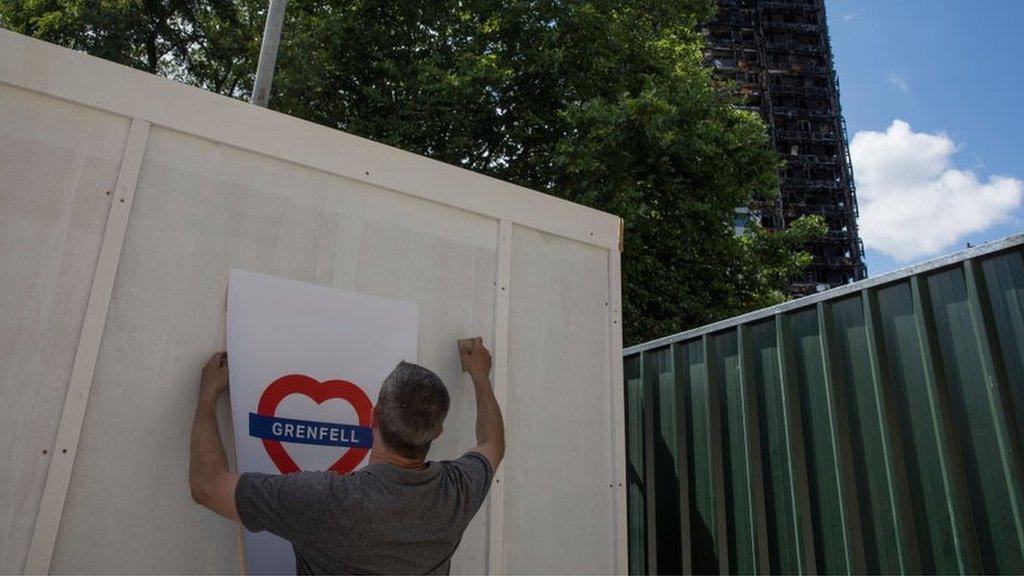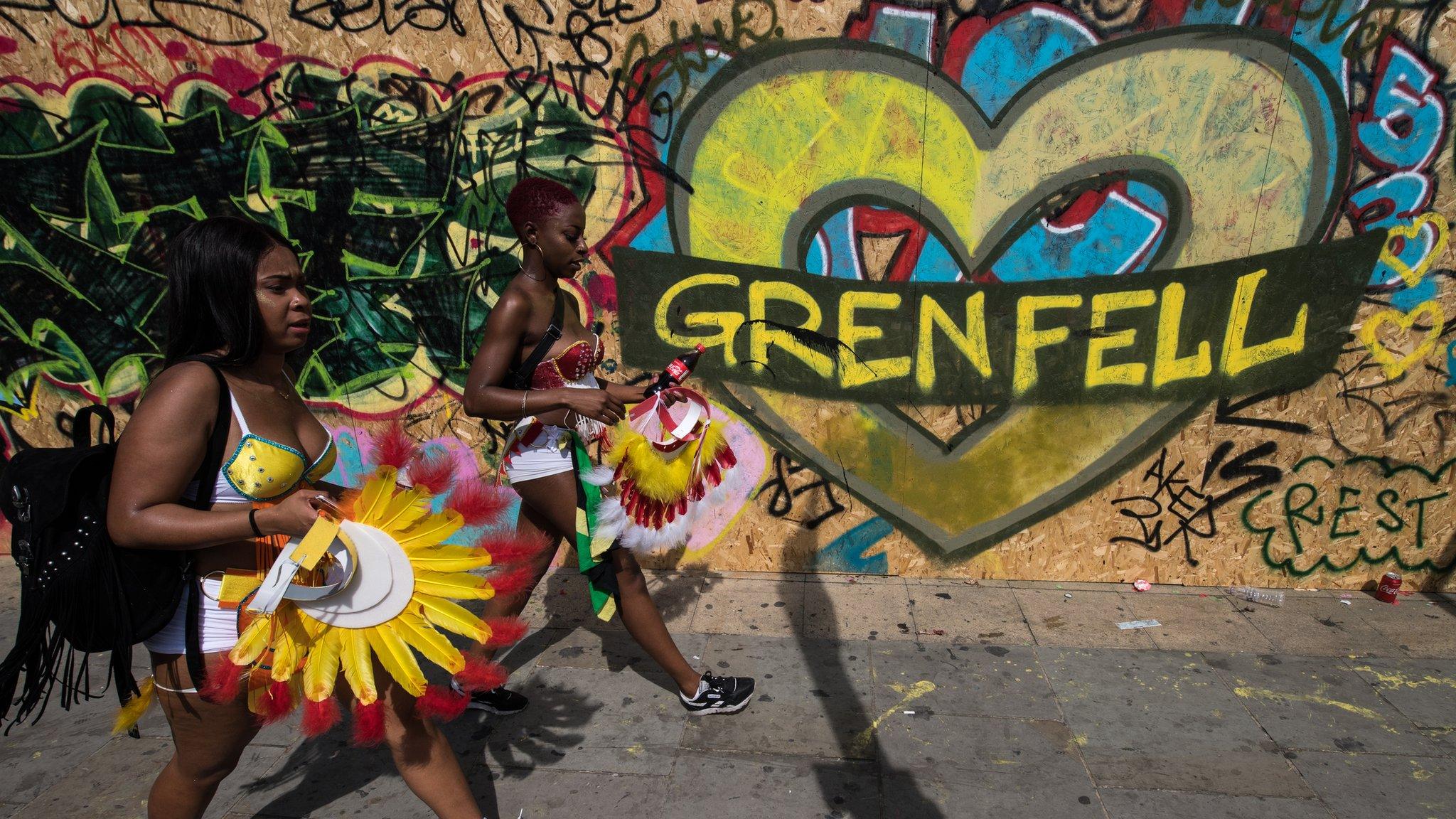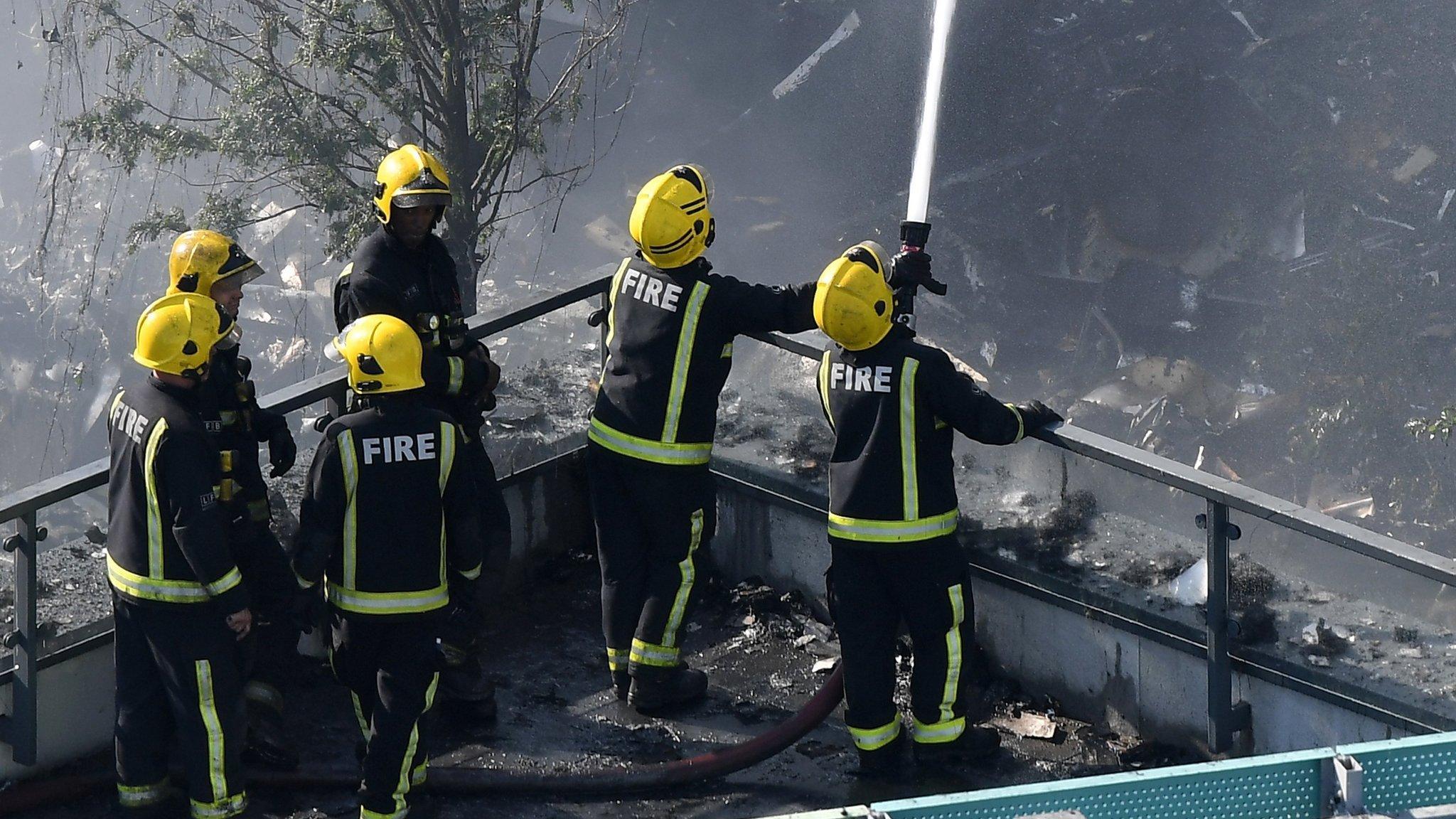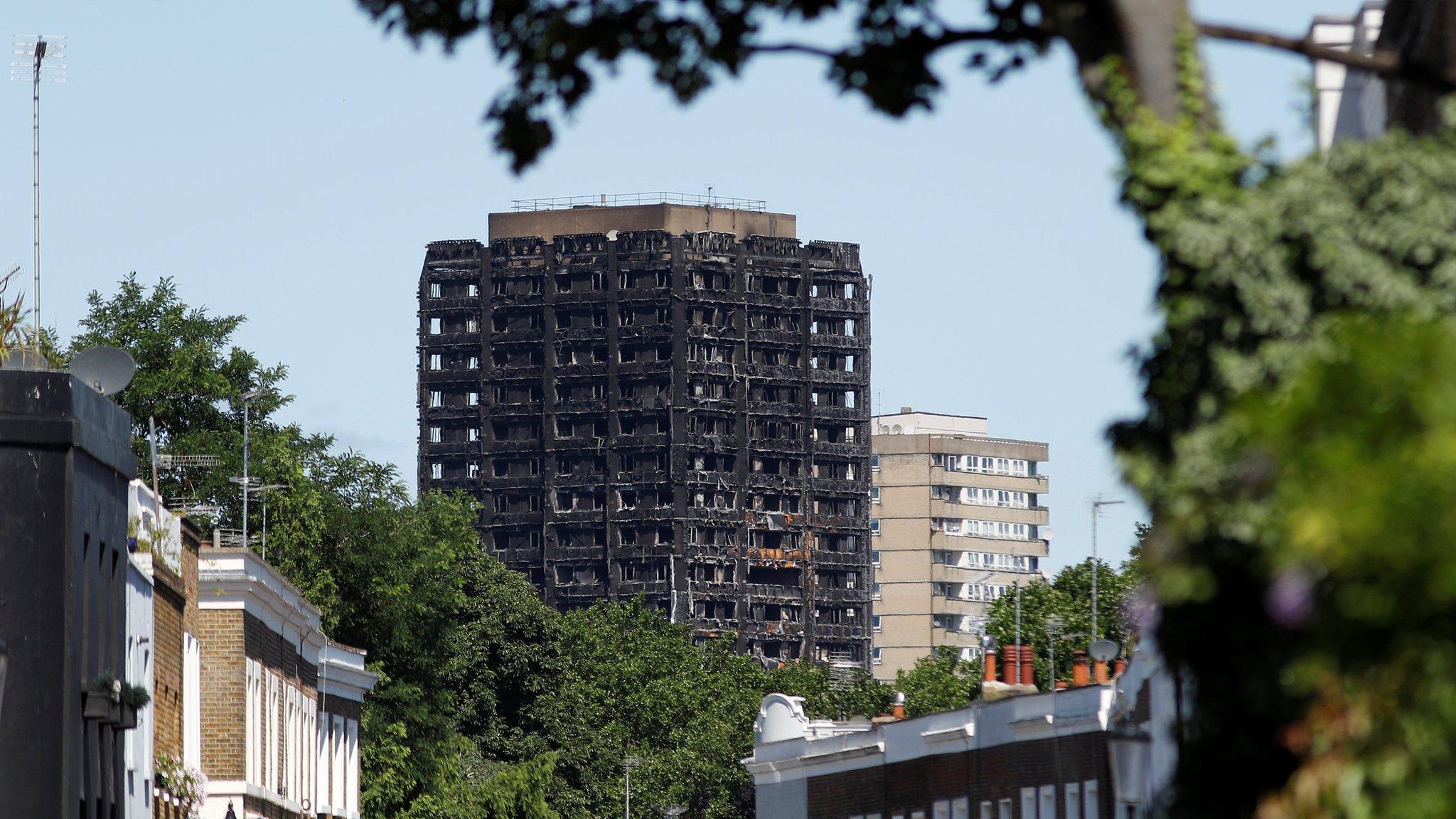Grenfell Tower: 131 families are in hotels, MPs hear
- Published

More than 130 families left homeless by the Grenfell Tower fire are living in emergency housing, MPs have heard.
Communities Secretary Sajid Javid said Kensington and Chelsea Council's response in the aftermath of the fire had been "sluggish and chaotic".
It comes as the Grenfell taskforce produced a report into the fire, which said the council "failed its community" on 14 June, external.
Council leader Elizabeth Campbell said it had "huge" amounts of work to do.
Speaking in the Commons, Mr Javid said residents had been "failed by a system that allowed the fire to happen" and then failed again in the aftermath.
He said efforts to rehouse victims had been "painfully slow" - with just 26 out of 204 Grenfell Tower and Grenfell Walk families given permanent accommodation so far.
'Hesitant' homeless
He said 122 households had accepted an offer of temporary or permanent accommodation, and 73 had moved in to new homes.
The taskforce said residents were "hesitating to accept rehousing offers" because they did not want to lose benefits.
Currently, former residents of Grenfell Tower and Grenfell Walk have their rent, utility bills and council tax suspended for the first 12 months of moving into temporary or permanent accommodation.
The council said this created a "financial cliff edge, which the tenants can avoid by remaining in their emergency accommodation".
Some residents see the rent-free period as wasted on temporary homes, it said.
It voted to extend the rent-free period until summer 2019 in a bid to remove "unintended disincentives".
Marcio and Andreia Gomes tell the story of how they managed to escape the fire
The Grenfell taskforce, set up in the aftermath of the fire, has spent nine weeks looking at the recovery process run by the council.
"The report pulls no punches about the fact that there is still significant room for improvement," Mr Javid said.
It said 320 families altogether - including not only former residents but also those living in Grenfell's vicinity - were still living in hotels.
The report, written by housing and local government experts appointed by the government, said the council needed to work more quickly, and cited accounts of "poor treatment" towards victims.
It said many staff did their best to help but there was a leadership vacuum and a distant council that did not know its residents.
The report's authors met survivors, concluding that many victims felt no-one was listening to their concerns.
It nevertheless praised Kensington and Chelsea for "working hard to develop effective support and services to victims and survivors".
Since the fire, many of those at the top of the council have quit, including leader Nick Paget-Brown and chief executive Nicholas Holgate.
The Royal Borough of Kensington and Chelsea said it "entirely" accepted all the taskforce's recommendations and would offer new homes to "all those who want to leave" emergency accommodation by December.
Cast a shadow
Mrs Campbell said the local authority had "huge amounts of work to do" and understood the need to change.
But the report criticised its lack of urgency, saying: "As the council tries to do everything at once, it is doing everything too slowly."
It accused council members of lacking a "firm grasp" of the true scale of the recovery operation - saying some believed that "in a few months' time everything shall return to the way it used to be".
It said it was "disappointing" that the tower, which is currently a crime scene, had not yet been covered, urging scaffold work to be completed with "greater haste".
Why did it take so long to get an aerial platform to the tower block? BBC Newsnight investigates
It said visible remains of the burnt-out tower "cast a shadow" over the entire area.
"Any extended delays will further add to the ongoing trauma that the community is living with," the report said.
Mr Javid suggested a number of ways the council could improve - including increasing the pace of their work and the need for "greater empathy and emotional intelligence" towards victims.
- Published14 September 2017

- Published17 June 2017

- Published7 July 2017

- Published12 July 2017

- Published5 July 2017
